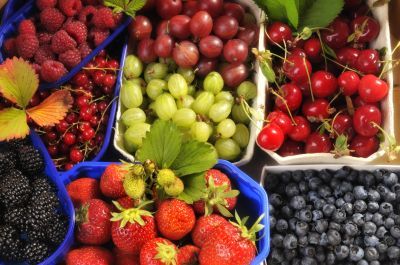Antioxidants could blunt the benefits of physical exercise

Antioxidants, the naturally occurring nutrients present in certain fruits and vegetables, have been widely praised for their anti-aging benefits, their ability to ward off disease and their immunity-boosting capabilities. But getting too many of them could counteract the benefits of otherwise healthy exercise, recent research has shown.
A report in the Globe and Mail (Dec. 10) highlights a couple of studies investigating the relationship of antioxidants and physical exercise. Because exercise causes the body to produce its own antioxidants, getting them artificially through supplementation - notably in the form of vitamin C, vitamin E, beta-carotene and resveratrol pills - could prevent the body from creating them on its own, the report says.
The report cites a study by researchers from the University of Jena in Germany (published in May in the Proceedings of the National Academy of Sciences) that found that taking antioxidant supplements dulled the body's ability to process insulin, one of the main benefits of physical exercise.
In their study, researchers showed that when healthy men took daily supplements of vitamin C and E for a month during which time they exercised regularly, their insulin sensitivity didn't improve, compared to other men on the same regimen who were given placebos, suggesting that supplementation shut down the physiological process needed to improve insulin sensitivity.
The report also mentions research by investigators from the University of Porto in Portugal (and writing in the September issue of Medicine & Science in Sports & Exercise) that found that antioxidant supplementation delayed muscle recovery in athletes after heavy training sessions. The researchers investigated whether a group of athletes on the national kayak team given a combination of antioxidants over a certain period sustained more muscle damage than a placebo group. Based on their findings, the researchers speculated that the antioxidants might allow the body to overexert itself and cause greater damage to the muscles.
As for the otherwise widely touted benefits of the micronutrients, a scientist cited in the report said that vitamins are best derived through diet and not through supplements, and that fruits and vegetables are healthy despite their antioxidant content, not because of it.
http://www.theglobeandmail.com
http://www.pnas.org/content/early/2009/05/11/0903485106.abstract
http://journals.lww.com/acsm-msse/pages/default.aspx
Join our commenting forum
Join thought-provoking conversations, follow other Independent readers and see their replies
Comments
Bookmark popover
Removed from bookmarks